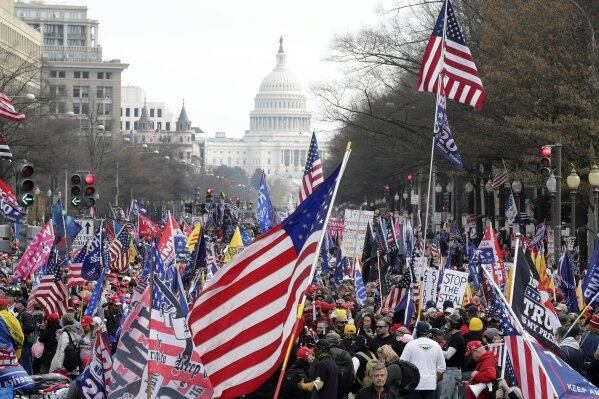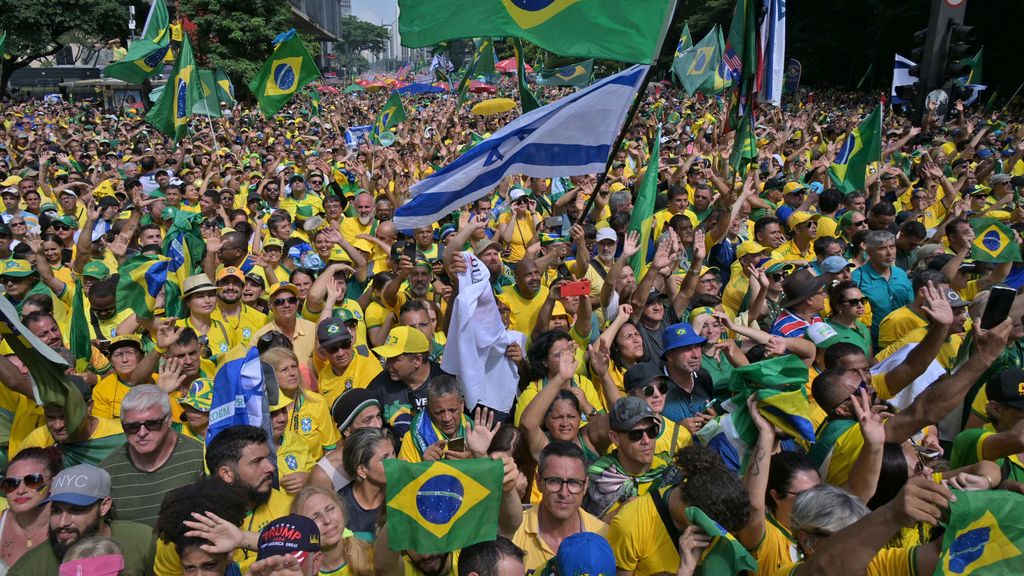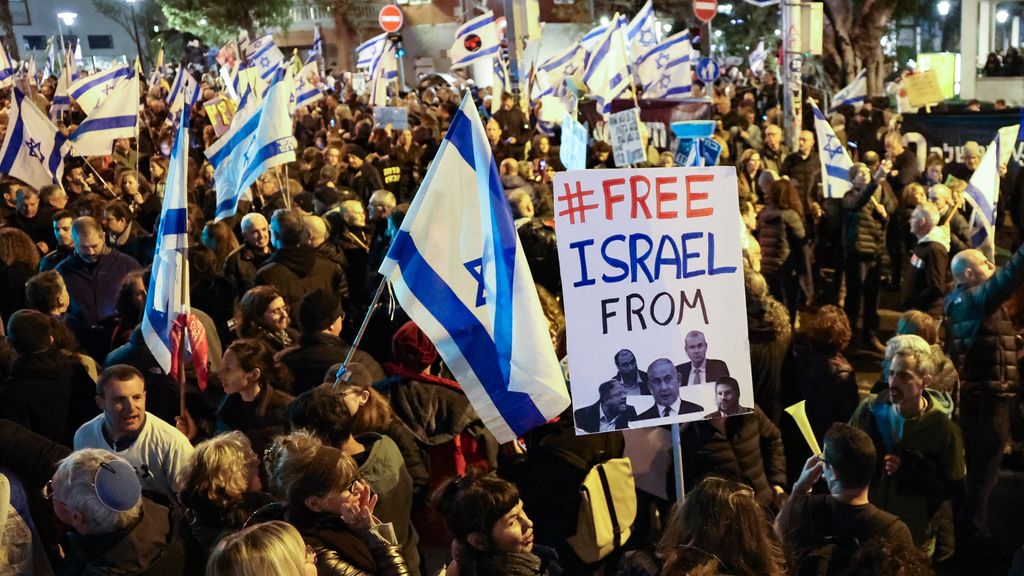It looks like you're using an Ad Blocker.
Please white-list or disable AboveTopSecret.com in your ad-blocking tool.
Thank you.
Some features of ATS will be disabled while you continue to use an ad-blocker.
share:
"Nothing new under the sun." (Eccl. 1:9,10) "Peddlers of the word of God" have been around for centuries. As for true Christians: “We are not
peddlers of* [Or “not commercializing; not making profit from.”] the word of God as many men are, but as out of sincerity, yes, as sent from God,
under God’s view, in company with Christ, we are speaking.” (2 Corinthians 2:17)
Paul knew of certain preachers who claimed to be Christian ministers but, like some Greek philosophers, cultivated the rich and took from the poor. He chided the congregation in Corinth (Greece), saying: “You put up with . . . whoever devours what you have, whoever grabs what you have.” (2 Corinthians 11:20) Jesus Christ never grabbed anything, and neither did Paul and his fellow workers. But Corinth’s greedy evangelists were “false apostles, deceitful workers, disguising themselves as apostles of Christ” but were actually ministers of Satan.—2 Corinthians 11:13-15. “Furthermore, many will follow their brazen conduct,* [Or “their acts of shameless conduct.”] and because of them the way of the truth will be spoken of abusively. Also, they will greedily exploit you with counterfeit words. But their judgment, decided long ago, is not moving slowly, and their destruction is not sleeping.” (2 Peter 2:2,3) Nothing new there either. Centuries before that, the prophet Jeremiah already wrote: “For from the least to the greatest, each one is making dishonest gain; from the prophet to the priest, each one is practicing fraud. And they try to heal the breakdown of my people lightly, saying, ‘There is peace! There is peace!’ When there is no peace. Do they feel ashamed of the detestable things they have done? They feel no shame at all! They do not even know how to feel humiliated!” (Jeremiah 6:13-15; 8:10-12) History keeps repeating itself. “What has been is what will be, and what has been done will be done again; there is nothing new under the sun. Is there anything of which one may say, “Look at this—it is new”? It already existed from long ago; it already existed before our time.” (Eccl. 1:9,10)
In contrast, here are Jesus’ instructions to his disciples: “You received free, give free.” (Matthew 10:8) Hence, never in the Bible narrative do we find Jesus’ faithful followers soliciting money or goods. Like Paul each one of them could truthfully say: “Without cost I gladly declared the good news of God to you.” (2 Corinthians 11:7)
True disciples of Christ (true Christians) still exist today. You won't find them running for political(/public) office or selling bibles to pay off a legal fine, funding a political campaign, or filling their pockets to satisfy their greed and 'love of money' + 'love of self' (the first 2 descriptions for people "in the last days" at 2 Timothy 3:1-5).
“The Christians . . . shrank from public office and military service.” (Editorial introduction to “Persecution of the Christians in Gaul, A.D. 177,” in The Great Events by Famous Historians, edited by R. Johnson, 1905, Vol. III, p. 246) “While they [the Christians] inculcated the maxims of passive obedience, they refused to take any active part in the civil administration or the military defence of the empire. . . . It was impossible that the Christians, without renouncing a more sacred duty, could assume the character of soldiers, of magistrates, or of princes.”—The Decline and Fall of the Roman Empire, by Edward Gibbon, Vol. I, p. 416. The modern equivalent of the bolded terms: bureaucrats, politicians, presidents, senators, (prime) ministers.
Paul knew of certain preachers who claimed to be Christian ministers but, like some Greek philosophers, cultivated the rich and took from the poor. He chided the congregation in Corinth (Greece), saying: “You put up with . . . whoever devours what you have, whoever grabs what you have.” (2 Corinthians 11:20) Jesus Christ never grabbed anything, and neither did Paul and his fellow workers. But Corinth’s greedy evangelists were “false apostles, deceitful workers, disguising themselves as apostles of Christ” but were actually ministers of Satan.—2 Corinthians 11:13-15. “Furthermore, many will follow their brazen conduct,* [Or “their acts of shameless conduct.”] and because of them the way of the truth will be spoken of abusively. Also, they will greedily exploit you with counterfeit words. But their judgment, decided long ago, is not moving slowly, and their destruction is not sleeping.” (2 Peter 2:2,3) Nothing new there either. Centuries before that, the prophet Jeremiah already wrote: “For from the least to the greatest, each one is making dishonest gain; from the prophet to the priest, each one is practicing fraud. And they try to heal the breakdown of my people lightly, saying, ‘There is peace! There is peace!’ When there is no peace. Do they feel ashamed of the detestable things they have done? They feel no shame at all! They do not even know how to feel humiliated!” (Jeremiah 6:13-15; 8:10-12) History keeps repeating itself. “What has been is what will be, and what has been done will be done again; there is nothing new under the sun. Is there anything of which one may say, “Look at this—it is new”? It already existed from long ago; it already existed before our time.” (Eccl. 1:9,10)
In contrast, here are Jesus’ instructions to his disciples: “You received free, give free.” (Matthew 10:8) Hence, never in the Bible narrative do we find Jesus’ faithful followers soliciting money or goods. Like Paul each one of them could truthfully say: “Without cost I gladly declared the good news of God to you.” (2 Corinthians 11:7)
True disciples of Christ (true Christians) still exist today. You won't find them running for political(/public) office or selling bibles to pay off a legal fine, funding a political campaign, or filling their pockets to satisfy their greed and 'love of money' + 'love of self' (the first 2 descriptions for people "in the last days" at 2 Timothy 3:1-5).
“The Christians . . . shrank from public office and military service.” (Editorial introduction to “Persecution of the Christians in Gaul, A.D. 177,” in The Great Events by Famous Historians, edited by R. Johnson, 1905, Vol. III, p. 246) “While they [the Christians] inculcated the maxims of passive obedience, they refused to take any active part in the civil administration or the military defence of the empire. . . . It was impossible that the Christians, without renouncing a more sacred duty, could assume the character of soldiers, of magistrates, or of princes.”—The Decline and Fall of the Roman Empire, by Edward Gibbon, Vol. I, p. 416. The modern equivalent of the bolded terms: bureaucrats, politicians, presidents, senators, (prime) ministers.
edit on 31-3-2024 by whereislogic because: (no reason given)
originally posted by: Mahogani
...
“I’m proud to endorse and encourage you to get this Bible. We must make America pray again.”
Austrian economist Schumpeter wrote: “The orientation toward war is mainly fostered by the domestic interests of ruling classes but also by the influence of all those who stand to gain individually from a war policy, whether economically or socially.” These ruling classes have been defined as “elites [that] are at all times involved in trying to manipulate other elements of the population, or the public mood itself, so as to perpetuate themselves in power.”—Why War? by Professors Nelson and Olin.
Every nation has its ruling class, even though that group may be divided into different political factions. However, many observe that the power of the military elite in every nation should not be underestimated. Former U.S. Ambassador John K. Galbraith describes the military establishment as “by far the most powerful of the autonomous processes of government.”
Even though religion is on the wane in many countries, the clergy can be included in the elite decision-making group. Down through history the priestly class has been the willing accomplice of the ruling elite. In time of war, religious leaders have piously blessed weapons and armies on both sides in the name of God, while often professing the same religion. This blasphemy has turned many people away from religion and God.
Catholic historian E. I. Watkin wrote: “Painful as the admission must be, we cannot in the interest of a false edification or dishonest loyalty deny or ignore the historical fact that Bishops have consistently supported all wars waged by the government of their country. . . . Where belligerent nationalism is concerned they have spoken as the mouthpiece of Caesar.”
When Watkin said that bishops of the Catholic Church “supported all wars waged by the government of their country,” he included the wars of aggression waged by Hitler. As Roman Catholic professor of history at Vienna University, Friedrich Heer, admitted: “In the cold facts of German history, the Cross and the swastika came ever closer together, until the swastika proclaimed the message of victory from the towers of German cathedrals, swastika flags appeared round altars and Catholic and Protestant theologians, pastors, churchmen and statesmen welcomed the alliance with Hitler.”
Catholic Church leaders gave such unqualified support to Hitler’s wars that the Roman Catholic professor Gordon Zahn wrote: “The German Catholic who looked to his religious superiors for spiritual guidance and direction regarding service in Hitler’s wars received virtually the same answers he would have received from the Nazi ruler himself.”
Back in 1946, British historian Arnold Toynbee wrote: “Patriotism . . . has very largely superseded Christianity as the religion of the Western World.” Since 1914, two world wars and over a hundred smaller conflicts have spilled an ocean of blood. A century ago, French writer Guy de Maupassant said that “the egg from which wars are hatched” is patriotism, which he called “a kind of religion.” In fact, The Encyclopedia of Religion says that patriotism’s cousin, nationalism, “has become a dominant form of religion in the modern world, preempting a void left by the deterioration of traditional religious values.” By failing to promote true worship, false religion created the spiritual vacuum into which nationalism was able to pour.
Nowhere was this better illustrated than in Nazi Germany, whose citizens at the beginning of World War II claimed to be 94.4 percent Christian. Of all places, Germany—birthplace of Protestantism and praised in 1914 by Pope Pius X as home of “the best Catholics in the world”—should have represented the very best that Christendom had to offer.
Sometimes the people are not in favor of a war. On what basis, then, can the rulers most easily persuade the population to support their aims? This was the problem that faced the United States in Vietnam. So, what did the ruling elite do? Galbraith answers: “The Vietnam War produced in the United States one of the most comprehensive efforts in social conditioning [adjusting of public opinion] in modern times. Nothing was spared in the attempt to make the war seem necessary and acceptable to the American public.” And that points to the handiest tool for softening up a nation for war. What is it?
Professor Galbraith again supplies the answer: “Schools in all countries inculcate the principles of patriotism. . . . The conditioning that requires all to rally around the flag is of particular importance in winning subordination to military and foreign policy.” This systematic conditioning prevails in (former) communist countries as it does in Western nations.
In our age, “nationalism’s chief symbol of faith and central object of worship is the flag,” wrote historian Carlton Hayes. “Men bare their heads when the flag passes by; and in praise of the flag poets write odes and children sing hymns.” Nationalism, he added, also has its “holy days,” such as the Fourth of July in the United States, as well as its “saints and heroes” and its “temples,” or shrines. In a public ceremony in Brazil, the minister general of the army acknowledged: “The flag is venerated and worshiped . . . just as the Fatherland is worshiped.” Yes, “the flag, like the cross, is sacred,” The Encyclopedia Americana once observed. The flag is the symbol of the State. Therefore, bowing down to it or saluting it is a religious ceremony that gives reverence to the State. Such an act ascribes salvation to the State and does not harmonize with what the Bible says about idolatry. (An idol is an image, a representation of anything, or a symbol that is an object of passionate devotion, whether material or imagined. Generally speaking, idolatry is the veneration, love, worship, or adoration of an idol. So yes, to many people, their flag is an idol.)
And now to get to the point that I'm responding to in Trump's sales pitch (the bolded part; the bit of background above felt pertinent or needed). The aforementioned encyclopedia more recently noted that national anthems “are expressions of patriotic feeling and often include an invocation for divine guidance and protection of the people or their rulers.” A national anthem is, in effect, a hymn or a prayer in behalf of a nation. It usually asks that the nation experience material prosperity and long duration. Should true Christians join in such prayerful sentiments?
The prophet Jeremiah lived among people who professed to serve God. Yet, Jehovah commanded him: “Do not pray in behalf of this people, neither raise in their behalf an entreating cry or a prayer nor beseech me, for I shall not be listening to you.” (Jeremiah 7:16; 11:14; 14:11) Why was Jeremiah given this command? Because their society was permeated with stealing, murdering, the committing of adultery, false swearing, and idolatry.—Jeremiah 7:9.
Like I said in my previous comment, history keeps repeating itself (Eccl. 1:9,10). God ain't listening to your prayers if you're a patriot and nationalist like Trump and thus practicing idolatry (including the veneration of the nation's flag, the pledge of allegiance, and national anthems). He's not interested. Just like he isn't interested in the prayers of these people (that is, as long as they keep practicing idolatry):



edit on 31-3-2024 by whereislogic because: (no reason given)
a reply to: whereislogic
I think the idea is to ask God to bless the USA. Like a prayer to keep us safe and prosperous. Or to thank God for the blessings of prosperity we have already enjoyed.
Just because you want the place you live in to be safe or you're proud to live in the freest country on earth, or you have a flag on your porch doesn't mean you worship an idol. It just means you understand what a tyrant is and that you sometimes need to express you opinions in a democracy in order to protect it from tyrants.
This idea that being a patriot or caring about you country or having a flag is fascist or evil is an incorrect cancer. It's being pushed so you won't care when it all goes in the crapper.
I think the idea is to ask God to bless the USA. Like a prayer to keep us safe and prosperous. Or to thank God for the blessings of prosperity we have already enjoyed.
Just because you want the place you live in to be safe or you're proud to live in the freest country on earth, or you have a flag on your porch doesn't mean you worship an idol. It just means you understand what a tyrant is and that you sometimes need to express you opinions in a democracy in order to protect it from tyrants.
This idea that being a patriot or caring about you country or having a flag is fascist or evil is an incorrect cancer. It's being pushed so you won't care when it all goes in the crapper.
a reply to: UpIsNowDown2
Could care less. It would show a little humanity and compassion from the POTUS to be honest. Besides, he would not do it but Hunter might and the Big guy would never see any monies. Read he is painting the stations of the cross for the Vatican.
Could care less. It would show a little humanity and compassion from the POTUS to be honest. Besides, he would not do it but Hunter might and the Big guy would never see any monies. Read he is painting the stations of the cross for the Vatican.
new topics
-
Smartest Man in the World Tells His Theory About What Happens At Death
Philosophy and Metaphysics: 2 hours ago -
Covid....... Again.
Diseases and Pandemics: 4 hours ago -
US Federal Funding set to Expire December 20th. Massive CR on the way.
Mainstream News: 4 hours ago -
and14263 New Account Not the Same Old Me
Introductions: 5 hours ago
top topics
-
Covid....... Again.
Diseases and Pandemics: 4 hours ago, 9 flags -
US Federal Funding set to Expire December 20th. Massive CR on the way.
Mainstream News: 4 hours ago, 8 flags -
Smartest Man in the World Tells His Theory About What Happens At Death
Philosophy and Metaphysics: 2 hours ago, 7 flags -
Just spotted an unusual aircraft Melbourne Australia
Aliens and UFOs: 13 hours ago, 6 flags -
and14263 New Account Not the Same Old Me
Introductions: 5 hours ago, 2 flags
